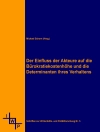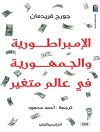The European Union (EU) is often portrayed as sacrificing national diversity for European unity. This book explores the alternative of a flexible EU based on differentiated rather than uniform integration.
The authors combine normative theory with empirical research on political party actors to assess the desirability and political acceptability of differentiated integration as a means of accommodating heterogeneity in the EU. They examine the circumstances and institutional design needed for flexibility to promote rather than undermine fairness and democracy within and between member states.
Clear, balanced, and accessible, the book provides fresh thinking on the future of the EU.
Tabla de materias
Introduction
Part 1: Normative Perspectives on Differentiated Integration
1. Differentiated Integration as a Fair Scheme of Cooperation
2. Democracy, Domination, and Differentiated Integration
3. Democratic Backsliding and the Limits to Differentiated Integration
Part 2: Political Party Perspectives on Differentiated Integration
4. Party Views on Differentiated Integration
5. Party Views on the Substantive Fairness of Differentiated Integration
6. Party Views on the Democratic Dilemmas of Differentiated Integration
7. Party Views on Democratic Backsliding and Differentiated Integration
Conclusion
Sobre el autor
Marta Lorimer is a Post-doctoral Research Associate in Politics at the University of Exeter.












